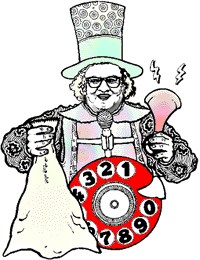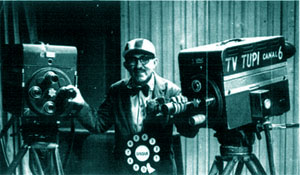
Ele nasceu na cidade turca de Esmirna, que, em 1906, tinha uma grande colônia grega. Em 1922, após uma tentativa frustrada de invadir Istambul, o governo grego perdeu o controle que estabelecera em Esmirna em 1919 e aceitou uma troca de civis. Cerca de 400 mil turcos que habitavam na Grécia voltaram para sua terra de origem, enquanto que um milhão de helenos chegaram à Grécia como refugiados. A família de Onassis estava nesse grupo.
Em 1927, com apenas US$ 250 partiu em direção à Argentina, onde tentaria uma nova vida. Em Buenos Aires, falsificou sua identidade para “envelhecer” seis anos e ter condições legais de trabalhar. Tornou-se telefonista e, nas horas vagas, estudava por conta própria o mercado financeiro. Com os poucos lucros obtidos pela especulação, pôde comprar roupas sofisticadas e passou a freqüentar a alta sociedade portenha.
 Aos poucos, os ganhos de Onassis se tornaram mais significativos e, com a ajuda de seu pai que permanecera na Grécia, se aventurou na importação de tabaco turco. Seu contato com a terra natal aumentou e ele decidiu voltar, mas manteve-se na exportação de tabaco. Para ampliar sua capacidade de transporte de tabaco, comprou dois navios no Canadá.
Aos poucos, os ganhos de Onassis se tornaram mais significativos e, com a ajuda de seu pai que permanecera na Grécia, se aventurou na importação de tabaco turco. Seu contato com a terra natal aumentou e ele decidiu voltar, mas manteve-se na exportação de tabaco. Para ampliar sua capacidade de transporte de tabaco, comprou dois navios no Canadá.Após um problema burocrático no porto de Roterdã, Onassis trocou a bandeira de seus barcos, agora com registro do Panamá. Com isso, trâmites como número de tripulantes, impostos e tipo de carga passaram a ser resolvidos com mais rapidez, barateando seus processos. Criativo, conseguia empréstimos bancários com constância, aumentando o tamanho de sua frota.
Em 1946, se casou com Athina Livranos, filha de outro empresário grego do setor de marinha mercante. Mudou-se para os Estados Unidos, onde ganhou espaço no mercado de petroleiros e baleeiros. Em 1956, vendeu sua frota baleeira para o japoneses e, com o lucro, fundou a companhia aérea Olympic Airways. Após diversas negociações com o governo grego, a empresa obteve privilégios para se tornar a linha aérea nacional da Grécia, mesmo sendo de propriedade privada.
 Em 1959, Onassis iniciou um longo romance com a soprano grega Maria Callas. No ano seguinte, se divorcia de Athina. A artista chegou a encerrar sua carreira temporariamente para acompanhar o empresário.
Em 1959, Onassis iniciou um longo romance com a soprano grega Maria Callas. No ano seguinte, se divorcia de Athina. A artista chegou a encerrar sua carreira temporariamente para acompanhar o empresário. A Olympic sobrevivia com dificuldades, mas a família Onassis quis mantê-la. Com a morte de seu filho Alexander em um acidente aéreo em 1974, Aristóteles ficou extremamente abalado e decidiu vender a Olympic para o governo grego.
Os negócios com os petroleiros estavam bem, mas a saúde do milionário, não. Em 1975, Onassis morreu devido a complicações após uma cirurgia. Sua fortuna ficou com Christina, sua única filha. Ela se suicidou em Buenos Aires em 1988 e sua única filha, Athina Onassis Roussel, de apenas 18 anos, herdou a fortuna calculada em US$ 3 bilhões. Athina é casada com cavaleiro brasileiro Álvaro Afonso de Miranda Neto, o Doda".
by Geoff Ficke
Aristotle Onassis was one of the most successful, publicized and examined people in the world during the middle of the 20th century. Today, years after his death, he is principally remembered as an ultra-rich shipping magnate, touring the world on his magnificent yacht and for his romance with the diva soprano Maria Callas and marriage to Jacqueline Kennedy. Before he attained business and social heights, however, he was a very rough, uncultured, non-work of art. His effort to change a dim future is worth a look: and is instructional as a teaching aid that anyone can utilize in pursuit of success.
Onassis was born in Turkey of Greek parents. At the end of World War l he, along with millions of others, was forced into refugee status and arrived in Argentina as a penniless immigrant. His Spanish was minimal, his education limited and his skills on offer were not highly prized. Nevertheless, he examined his circumstance realistically and with deep analysis. He recognized that out of post-war chaos would come opportunity for the agile and creative entrepreneur. Being broke was just an obstacle, not a closed door to Onassis.
As Onassis learned the ways of Argentine society and business he noticed that there were specific clubs, restaurants, hotels and theatres that were almost exclusively frequented by the successful business and political class. Always a keen observer of human nature, he realized that contacts and friendships of value to an ambitious fellow like himself could only be nurtured in this rarified realm. Onassis was determined to find a way in.
He worked mundane jobs, including a stint as a telephone operator. However, he was different from co-workers and other immigrants. He immersed himself in all things Argentine and he saved every cent he earned that was not needed for basic sustenance. Most importantly, he recognized the old saying; “the rich are different from you and me” was so true. He needed to emulate the rich in order to become rich. He never looked at successful people as the enemy. He had aspirations, not jealousy in his heart.
Onassis became addicted to quality in all areas of life. While still poor, he saved every peso until he could afford a Saville Row hand cut suit. He only had one suit, but it was elegant. He also observed that the rich seemed to appear healthier, happier. They seemed to sport suntan skin as a badge of their fortunate lifestyle. Onassis developed a lifetime addiction to pursuit of the perfect suntan. His tan was internationally famous long before the actor George Hamilton gained similar fame. To this day, a suntan is an emblem of the good life for the successful class.
A Saville Row suit, quality personal furnishings and a suntan that reeked of idle leisure and success were only a start. Onassis was still a rough cob. Nevertheless, he believed in his ultimate destiny. He would have a drink every night at the bar of the Intercontinental Hotel in Buenos Aires, the cities finest. Only one drink, because that was all he could afford. He still worked as a telephone operator, but he kept his parallel lives as a blue-collar worker and social status seeker firmly differentiated.
His nightly visits to the Intercontinental Hotel bar gradually lead to his building a network of business and social contacts. The famous Argentine soprano Claudia Musa frequently visited the hotel. She was an adored opera star and a cultured beauty. Onassis was basically nobody and a poseur. And yet, he pursued the beautiful singer, and with his usual tenacity he won her heart. This drive to win would be displayed in every area of his long and exciting life.
Onassis recognized that Argentine women preferred a type of sweet Turkish tobacco that was not widely available in South America. Utilizing his newly found relationships; he brokered an import deal for an inventory of the tobacco. He assembled the capital necessary to organize a small factory and began to market several brands of Turkish cigarettes. This small, but successful deal was the basis for his later international business prominence.
Onassis recognized that World War 11 was imminent. The movement of war materiel was going to become crucial to the Allies winning the war. Shipping would be highly profitable, if he could find an inventory of ships to purchase. With customary elan, he found a small fleet of sturdy but well used freighters on the St. Lawrence Waterway and arranged a tight line of credit to purchase the motley flotilla. He was on his way to becoming the most famous shipping magnate in history.
Entrepreneurs, in order to succeed, often must change elements of their personal lifestyle. We have all heard the old adage, “success breeds success”. No one practiced this truism more fully and instructively than Aristotle Onassis. He bought one high quality suit. He squired beautiful women. He went to the finest clubs, even though he could not afford much more than one drink. He used his new environment, new contacts and network to benefit his single-minded pursuit of success. Why did Willy Sutton rob banks: because that was where the money was! Onassis also made the elemental decision to hang out where the money was.
I work with entrepreneurs from all walks of life: no two are alike. One of the most difficult aspects of the entrepreneurial process that must be overcome is the need to adjust lifestyle. Sacrifice today will pay dividends tomorrow. Venture capital usually will not be found in a pool hall. The necessity to improve one’s self-presentation and to network continually is paramount. You must be constantly closing the sale, improving your skills and totally focus on achieving your goal.
Aristotle Onassis worked blue-collar jobs, spoke Spanish as a third language, was a displaced immigrant on a strange continent and had zero personal assets. Nevertheless, he organized a personal plan to overcome his obstacles and lead a life of legendary accomplishment.
I spend a great deal of time in my marketing and funding consulting work coaching inventors and entrepreneurs to overcome self-imposed hurdles. Some easily recognize the need to change habits and to utilize pieces of the Onassis template. They often have the ability to succeed. Many more unfortunately, decide that they know best, markets will adapt to their wants and a shortcut to success can be taken. They always fail. This is an absolute observation". (GEOFF FICKE)
onde se pode ler, sobre o autor do artigo:









 Seus programas de calouros e de divulgação da MPB, como a Discoteca do Chacrinha, a Buzina do Chacrinha e o Cassino do Chacrinha foram sucesso em todas as emissoras nas quais Chacrinha trabalhou: TV Tupi, TV Rio, TV Bandeirantes e TV Globo.
Seus programas de calouros e de divulgação da MPB, como a Discoteca do Chacrinha, a Buzina do Chacrinha e o Cassino do Chacrinha foram sucesso em todas as emissoras nas quais Chacrinha trabalhou: TV Tupi, TV Rio, TV Bandeirantes e TV Globo.










